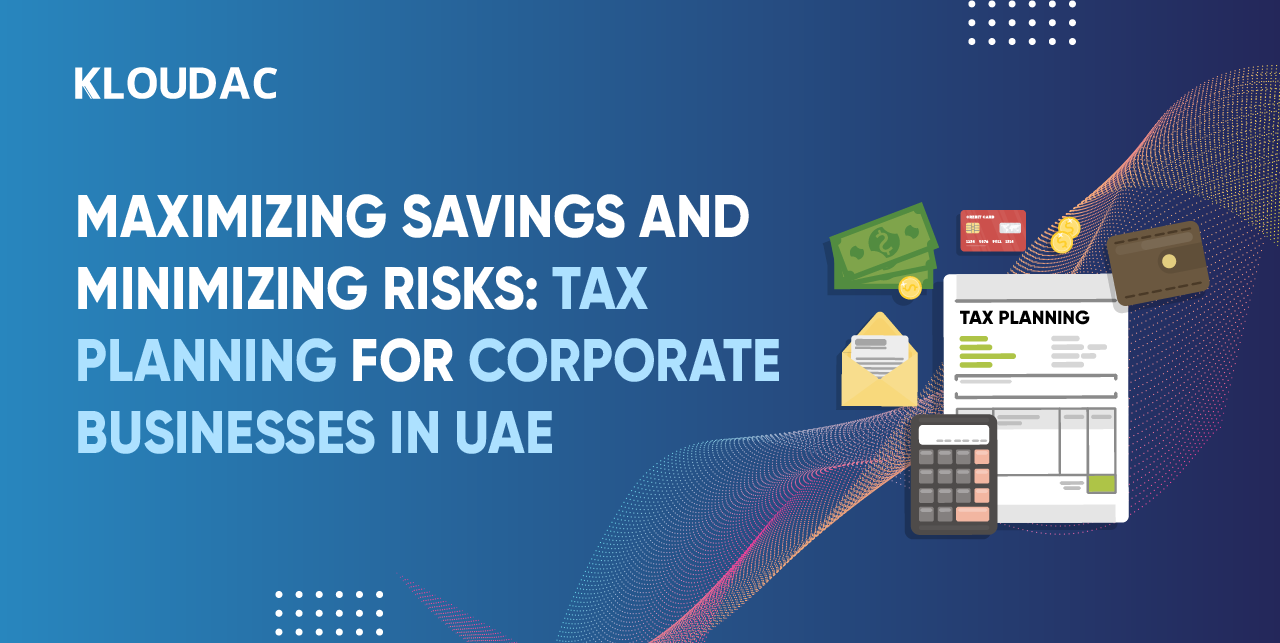Tax planning is an essential aspect of financial management for any corporate business operating in the UAE. Effective tax planning involves analyzing the current tax regime and designing a strategy that maximizes savings while minimizing risks.
The UAE has a relatively low-tax regime compared to other countries, with no income tax on individuals and businesses operating in most sectors. However, it is still essential for businesses to be aware of their tax obligations and ensure that they comply with local regulations to avoid penalties.
Here are some strategies that businesses in the UAE can use to maximize their savings and minimize risks through effective tax planning.
Understand your tax obligations
The first step in effective tax planning is to understand your tax obligations. This includes identifying the taxes that your business is liable to pay and the deadlines for filing tax returns. The UAE levies several taxes, including value-added tax (VAT), corporate tax, and excise tax. Understanding your tax obligations will help you avoid penalties and optimize your tax strategy.
Take advantage of tax incentives
The UAE offers several tax incentives to businesses, such as exemptions and reduced tax rates for certain sectors. For example, companies operating in free zones are exempt from corporate tax for up to 50 years. Taking advantage of these incentives can help you reduce your tax liability and maximize savings.
Consider tax-efficient structures
Choosing the right legal structure for your business can have a significant impact on your tax liability. For example, setting up a branch office in the UAE may result in a higher tax liability compared to setting up a free zone company. It is essential to consult with a tax professional to determine the most tax-efficient structure for your business.
Keep proper records
Maintaining accurate financial records is crucial for effective tax planning. Keeping proper records will help you calculate your tax liability accurately and avoid errors that can result in penalties. Investing in reliable accounting software can help you keep track of your finances and streamline your tax compliance.
Plan ahead for tax payments
Planning ahead for tax payments can help you manage your cash flow and avoid penalties for late payments. It is essential to set aside funds for tax payments and plan for any tax obligations that may arise in the future.
KLOUDAC Accounting Firm Dubai, UAE
Effective tax planning is critical for maximizing savings and minimizing risks for corporate businesses operating in the UAE. KLOUDAC helps you in understanding your tax obligations, taking advantage of tax incentives, choosing tax-efficient structures, keeping proper records, and planning ahead for tax payments, you can optimize your tax strategy and achieve financial success. It is essential to consult with a tax professional to ensure that you comply with local regulations and take advantage of all available tax incentives.
